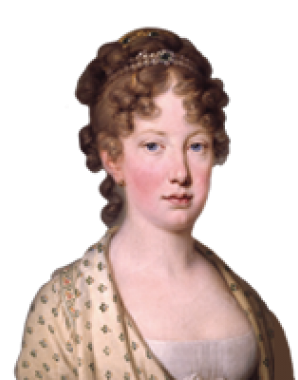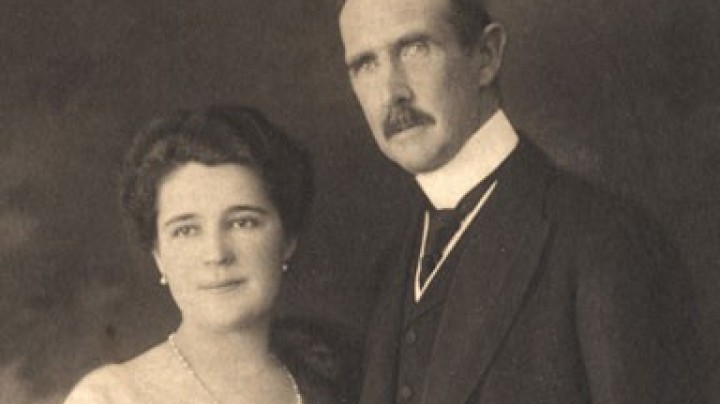The English governess: Maria Graham
Crown Princess Maria-Glória’s governess becomes Dona Leopoldina’s only friend.
After September 1822 home life at Boa Vista became even more difficult because the emperor’s mistress planted new servants in the household to spy upon Leopoldina: Did she give too many alms? Did she read books that the Emperor had forbidden her? Did she speak French or German with the ambassadors? This spiteful oppression by the servants had a devastating effect, particularly on the children. As early as 1824 the then five-year-old first-born girl, Maria-Glória, began to show a number of negative traits and Leopoldina realized that she desperately needed a governess. She found the right person for the task in the Englishwoman Mary Graham.
Mary Graham came to Boa Vista in September 1824. She was well-travelled, a published writer (Letters of India) and an accomplished draughtswoman. She also carried out scientific botanical studies and translated books from French into English.
At first this well-educated woman was given a friendly reception by Dom Pedro and granted full authority over the upbringing of Crown Princess Maria-Glória. She quickly apprised herself of the defects in the child’s up-bringing: Maria-Glória had no table manners; she moved from place to place at table, helping herself to whatever she wanted to eat. She whipped slave children for fun and made them dance in a circle. She was given her bath in the hallway and giggled at the teasing jokes of the servants as they passed. She chattered loudly without waiting to be spoken to and ran around the church during mass. The governess and Leopoldina immediately worked out a strict plan for raising the child. Even her dietary regime was changed – until then the five-year-old had been given wine and coffee for breakfast!
Starved of conversation and intellectual exchange for seven years, Leopoldina blossomed visibly as a consequence of Mary Graham’s presence in Boa Vista. She sought out every opportunity to converse with this educated woman, and their relationship quickly grew into an affectionate friendship. However, the pleasure of having a friend, a kindred spirit of her own choosing, lasted only six weeks, after which Maria Graham was dismissed by the emperor, and Leopoldina was unable, more importantly still was not entitled, to reverse Dom Pedro’s decision. ‘Sadly I was forced to advise this excellent woman to leave for her own sake’, Leopoldina wrote to her sister Marie Louise.
It should not go unmentioned that there are today lesbian societies in Rio de Janeiro and Salvador who have chosen Dona Leopoldina as their patroness because of her cordial relationship with Mary Graham. ‘Dona Leopoldina, a patrona de uma associação das amigas especiais.’














